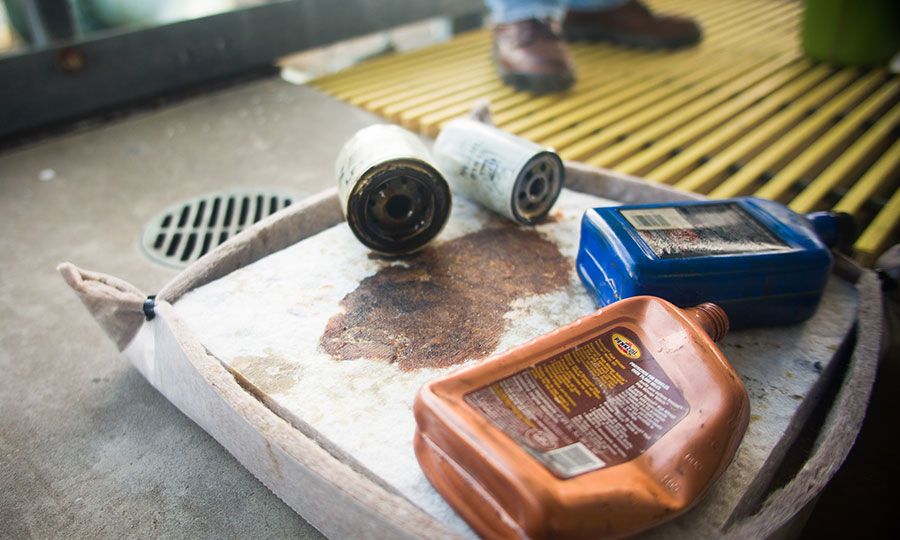

Conducting Annual SPCC Oil-Handler Training
If your facility is subject to Spill Prevention Control and Countermeasure (SPCC) regulations, you’ve got oil handlers. They’re the employees who operate and maintain oil-filled containers and equipment. They’re also the ones who handle oil storage containers. They may be the technicians performing repairs. They could be foremen who oversee bulk fluid transfers and perform routine inspections.
Who is an Oil-Handler?
The EPA doesn’t provide a specific definition of “oil handler,” but they do list the oil handling activities that subject a facility to SPCC regulations. So, while administrative staff such as clerks and office staff probably don’t meet the definition of “oil handler”, any employee who is directly involved in…
-
Drilling
-
Producing
-
Gathering
-
Storing
-
Processing
-
Refining
-
Transferring
-
Distributing
-
Using, or Consuming oil
…at your facility most likely fits the definition.
Because these employees play a key role in following the SOPs outlined in your SPCC plan and are often the first to discover oil leaks and spills; your SPCC plan must outline how they will be trained on oil-handling duties. And, to ensure that they keep those skills fresh, they must also be retrained each and every year.
Oil Handler Training
Because the SPCC Rule is performance-based, there is no specified format, time requirement or teaching method specified in the rule. That means that as long as your training is effective, you can conduct refresher trainings in a traditional classroom setting, as a tailgate, online, or by another method.
The rule does, however, specify the topics that must be covered in annual refresher trainings. Successful trainings will allow employees to demonstrate their understanding of:
- Clean Water Act and other applicable regulation
- The contents of your facility’s SPCC Plan
- Your facility’s general operations that subject the facility to SPCC regulations
- SOPs for operating and maintaining equipment so that oil discharges are prevented
- The procedures that will be followed if there is an oil discharge
Facilities must maintain documentation of initial trainings as well as annual refresher trainings. Documentation can take any form, such as signed class rosters or course completion certificates.
Coordinating Training
Maybe you’ve got a small facility with employees who all physically report to the same facility every day. Perhaps you’ve got hundreds of remote employees who could be at one of several locations on any given day.
Whatever the scenario, it can be difficult to find a single time and place to conduct a traditional classroom training that ensures you’ve retrained each of your oil handlers. And with the current work-from-home environment, it might be impossible to conduct training with a group gathered in a physical location.
To help you meet this challenge, we’ve created an online Oil-Handler Refresher Training. It can be completed anytime, anywhere on any device. We’ve broken the required refresher topics into six bite-sized microlearning modules that allow each employee to learn at their own pace.
Each module includes a short quiz at the end to gauge comprehension. We’ll even keep track of their progress, issue course completion certificates and let you know when they’ve completed all six modules. This helps you stay on top of required training documentation.
The best part is that the course is absolutely free. Just click here to give it a try. It’s our way of helping you meet this requirement in your ongoing quest to prevent oil pollution.

Signup Now - SPCC Oil Handler Training Course
Train your crews and stay compliant without ever stepping into the classroom. Your annual SPCC oil-handler training is now easier than ever. No schedules, no classrooms, no worries. It's free to enroll.